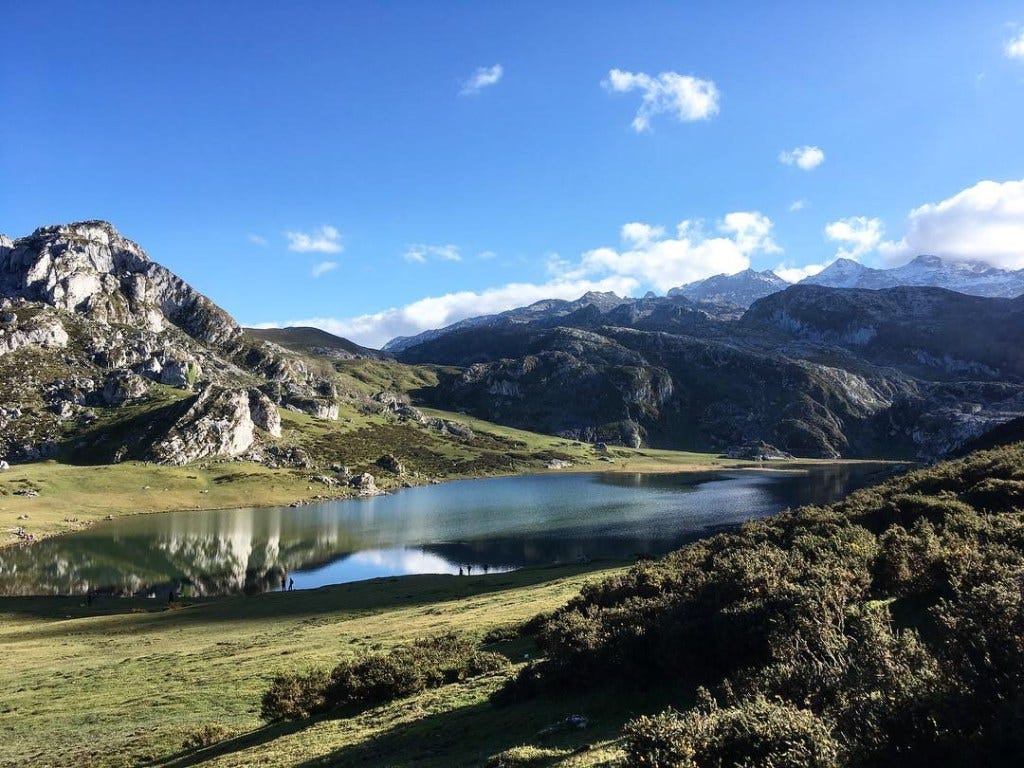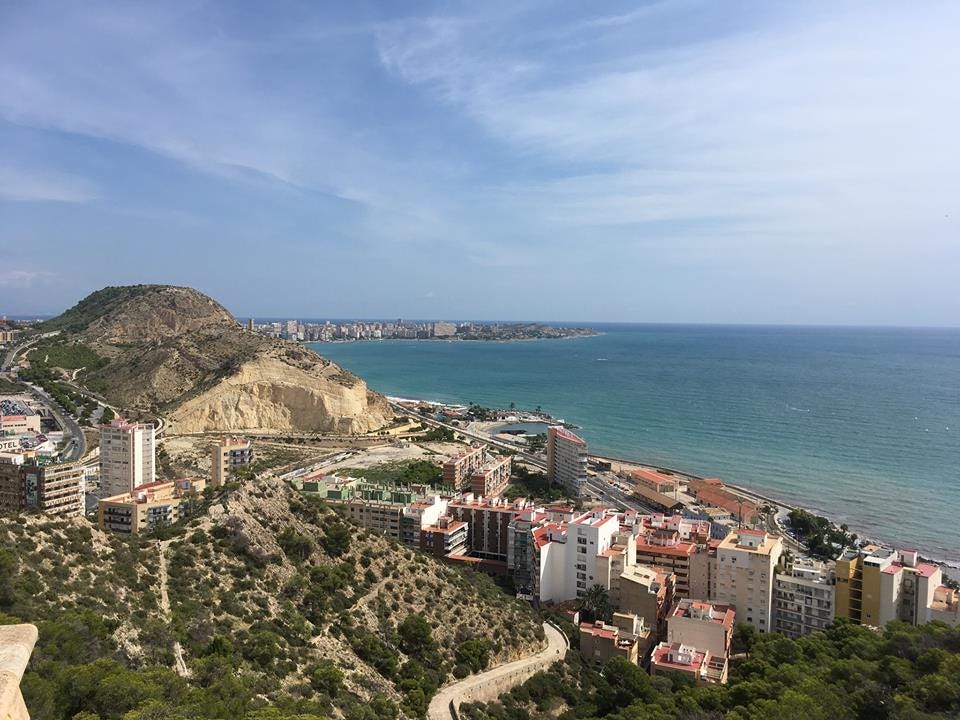“Are you traveling alone?”
The elderly Asturian woman was dressed from neck to toe in black and held a wooden walking stick like mine. She seemed too fragile to be out in the forest by herself, much less chugging her way up this steep hill in northern Spain.
“Yes, I am,” I said, wondering if she needed help.
“All alone?” she repeated.
“Yes,” I said, leaning on my walking sticks. One was a tree branch I’d found in the forest. A man had handed me the other stick on my first day hiking the oldest path of the Camino de Santiago, the Camino Primitivo.
“Better alone than in bad company,” she said in Castilian Spanish.
“Where are you going?” I asked. She looked like she would crumble into dust on the side of the mountain.
“I’m just doing a paseo,” she said. “I’m taking a little walk.” She told me goodbye and disappeared up the path and into the forest.
I didn’t set out to be a solo traveler. Growing up, I visited Colorado, Florida, and California with my parents and sister. My best friend and I spent years planning combined trips around Europe. I enjoy company. I am an introvert who also craves the comfort of other people.
But when it came time to choose between studying abroad and staying on campus in Texas, I was the only one at my university who signed up to go. I moved to Costa Rica by myself and met students from around the country as well as Costa Rican and Nicaraguan friends who I keep in contact with to this day.
Later, when it was time to choose an internship for my major, I applied to one in Slovakia. I wasn’t intending to ride trains and buses around Eastern Europe by myself when I didn’t speak the language or even have a phone. But my supervisors had to return to the States my first week, and that’s how it happened.
And it kept happening. I moved alone to Virginia for another internship. Afterward, I settled back in Texas, thinking I would be content to stay close to home. But two years in Austin, and I was starting to lose myself and my drive to keep going. I fell in love with the field of linguistics and decided to devote myself to learning, teaching, travel and languages. I moved to southern Spain by myself. The next year, I moved to the opposite side of the country.
In northern Spain, I went on three solo hiking trips along the Camino de Santiago. I’ll never forget the words of two old Basque men I met on the top of the hardest mountain I climbed.
One said: “You’re alone? You’re valiente. You are brave.”
The other had the opposite reaction. “You’re walking the Camino del Norte, by yourself, in the middle of winter? A little weird, no?”
I suppose it is strange. Plenty of people choose this lifestyle. Plenty of people are alone. But it never seems to be the default state. No one seems to really want to be by themselves. They do it for a time — to find themselves, to detox after some failure, to focus on what they really want. But no one seems to actively seek it.
And then, there’s me.
I understand the desire for partnership. I read books on soul mates and happily ever afters as a child. I do cling to a hope that one day I will meet someone going my way, and we’ll make a life of it. Travel together, have a kid, adopt a dog, grow old in our rocking chairs — shooting the shit.
I don’t believe in soul mates or The One Who Ends All and Is All. It’s a mathematical impossibility and makes the cynical side of me laugh.
But, I also see the lives of my parents and the relationship of my late grandparents. I’m here today because they shut down the distractions and decided to travel the same way. They made a commitment, and they work for it daily.
I moved to Brazil after Spain, and it was like becoming a toddler all over again. A new language to muddle through. New customs to understand. New anxieties and new joys. I love this high. I love to experience the boredom and mundanity that comes with moving to another place as well as the little surprises even a visit to the village market can bring. I think I might be addicted to this feeling.
Living on your own abroad doesn’t really leave you the same. Once you know another way to be, another path for your neurons to travel, it’s difficult to fit back in.
I like moving to new places by myself. But there is a sacrifice. The giving is difficult. The missed celebrations, births, and unions. The lack of physical presence. The inability to hug your loved ones or walk your dog.
Yet when I stay still, I feel as if I’m stuck in soup. I feel restless. I feel like I have too much to do and not enough time to do it.
My parents wonder when I am coming back.
I also wonder.
“How many kilometers do I need to walk? How many continents do I need to cross? How many languages do I need to fumble through? When will it be enough? Do I want it to be enough?”
I am learning to not apologize for being alone. I am learning that it’s good for my mental health, my self-esteem, my friendships, and relationships. When I am able to recharge from a place within myself, I am able to give more to those around me.
I see life as an adventure, and I feel lucky to be able to live this way. Without the community and relationships I have formed in other countries, I’d be lost. I love the idea of partnership and finding genuine connection with another person.
But for now, I’m following the path of a solo traveler. Going solo has been my default for nearly all of my adult life.
For me, it’s always been better to go alone than in bad company.









So true, Ashleigh, better to be alone than in bad company. And also, a beautiful soliloquy on life in general.
Many people don’t know how to be alone and content in themselves. It’s a gift when you can enjoy solitude!